第17章 THE FOURTH(7)
"A common type, stripped of his intellectual dressing.Every third manufacturer from the midlands or the north has some such undertow of 'affairs.' A physiological uneasiness, an imaginative laxity, the temptations of the trip to London--weakness masquerading as a psychological necessity.The Lady of the Carbuncle seems to have got rather a hold upon him.
She has kept him in order for three or four years."The doctor scrutinized his own remarks with a judicious expression.
"I am not being fair.He ruffled me.Even if it is true, as Isaid, that every third manufacturer from the midlands is in much the same case as he is, that does not dismiss the case.
It makes it a more important one, much more important: it makes it a type case with the exceptional quality of being self-expressive.Almost too selfexpressive.
"Sir Richmond does, after all, make out a sort of case for himself....
"A valid case?"
The doctor sat deep in his chair, frowning judicially with the fingers of one hand apposed to the fingers of the other.
"He makes me bristle because all his life and ideas challenge my way of living.But if I eliminate the personal element? "He pulled a sheet of note-paper towards him and began to jot down notes with a silver-cased pencil.Soon he discontinued writing and sat tapping his pencil-case on the table."The amazing selfishness of his attitude! I do not think that once--not once--has he judged any woman except as a contributor to his energy and peace of mind....Except in the case of his wife....
"For her his habit of respect was formed before his ideas developed....
"That I think explains HER....
"What was his phrase about the unfortunate young woman with the carbuncle?...'Totally Useless and unnecessary illness,' was it?...
"Now has a man any right by any standards to use women as this man has used them?
"By any standards?"
The doctor frowned and nodded his head slowly with the corners of his mouth drawn in.
For some years now an intellectual reverie had been playing an increasing part in the good doctor's life.He was writing this book of his, writing it very deliberately and laboriously, THE PSYCHOLOGY OF A NEW AGE, but much more was he dreaming and thinking about this book.Its publication was to mark an epoch in human thought and human affairs generally, and create a considerable flutter of astonishment in the doctor's own little world.It was to bring home to people some various aspects of one very startling proposition: that human society had arrived at a phase when the complete restatement of its fundamental ideas had become urgently necessary, a phase when the slow, inadequate, partial adjustments to two centuries of changing conditions had to give place to a rapid reconstruction of new fundamental ideas.And it was a fact of great value in the drama of these secret dreams that the directive force towards this fundamentally reconstructed world should be the pen of an unassuming Harley Street physician, hitherto not suspected of any great excesses of enterprise.
The written portions of this book were already in a highly polished state.They combined a limitless freedom of proposal with a smooth urbanity of manner, a tacit denial that the thoughts of one intelligent being could possibly be shocking to another.Upon this the doctor was very insistent.Conduct, he held, could never be sufficiently discreet, thought could never be sufficiently free.As a citizen, one had to treat a law or an institution as a thing as rigidly right as a natural law.That the social well-being demands.But as a scientific man, in one's stated thoughts and in public discussion, the case was altogether different.There was no offence in any possible hypothesis or in the contemplation of any possibility.Just as when one played a game one was bound to play in unquestioning obedience to the laws and spirit of the game, but if one was not playing that game then there was no reason why one should not contemplate the completest reversal of all its methods and the alteration and abandonment of every rule.Correctness of conduct, the doctor held, was an imperative concomitant of all really free thinking.Revolutionary speculation is one of those things that must be divorced absolutely from revolutionary conduct.
It was to the neglect of these obvious principles, as the doctor considered them, that the general muddle in contemporary marital affairs was very largely due.We left divorce-law revision to exposed adulterers and marriage reform to hot adolescents and craving spinsters driven by the furies within them to assertions that established nothing and to practical demonstrations that only left everybody thoroughly uncomfortable.Far better to leave all these matters to calm, patient men in easy chairs, weighing typical cases impartially, ready to condone, indisposed to envy.
In return for which restraint on the part of the eager and adventurous, the calm patient man was prepared in his thoughts to fly high and go far.Without giving any guarantee, of course, that he might not ultimately return to the comfortable point of inaction from which he started.